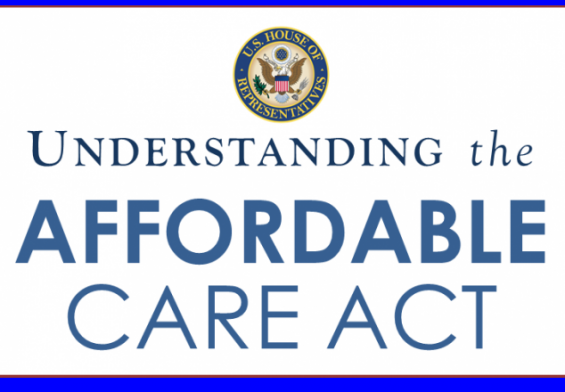Medicaid and Medicare are vital government-funded health insurance programs that provide coverage for millions of Americans. However, these programs often have limitations, especially for seniors and individuals with disabilities who require long-term care. This is where Medicaid and Medicare waiver programs come into play.
Medicaid is a joint federal-state program that provides health coverage for low-income individuals and families, including many elderly and disabled people. In Texas, Medicaid offers a range of benefits such as doctor visits, hospitalizations, prescription drugs, and some long-term care services.
Medicare is a federal health insurance program primarily for people aged 65 and older, as well as younger people with certain disabilities. It covers hospital stays, doctor visits, and some preventive services. While Medicare Part A (hospital insurance) and Part B (medical insurance) are core components, they often don’t fully cover the costs of long-term care.
To address the gaps in traditional Medicaid and Medicare coverage for seniors and individuals with disabilities, Texas offers a variety of waiver programs. These programs provide additional services and support, allowing beneficiaries to live more independently in their homes or communities.
Understanding Medicaid and Medicare in Texas
Eligibility Requirements
To qualify for Medicaid in Texas, individuals must meet specific income and resource guidelines. These guidelines vary depending on age, disability status, and other factors. Additionally, certain assets, such as savings and property, may affect eligibility.
Medicare eligibility is primarily based on age (65 or older) or disability status. There are no income requirements for Medicare, but there are premiums and deductibles that beneficiaries must pay.
Benefits Covered
Medicaid covers a wide range of medical services, including doctor visits, hospitalizations, prescription drugs, and long-term care. The specific benefits available can vary depending on the individual’s situation and the state’s Medicaid plan.
Medicare also covers a variety of healthcare services, including hospital stays, doctor visits, and preventive care. However, Medicare does not typically cover long-term care services like nursing home care or in-home assistance.
Limitations of Traditional Medicaid and Medicare
While Medicaid and Medicare provide essential health coverage, they often have limitations when it comes to long-term care. Traditional Medicaid may not cover the full cost of nursing home care or in-home services, leading to financial hardship for many beneficiaries. Medicare has even more limited coverage for long-term care, with most services not being covered at all.
These limitations highlight the need for Medicaid and Medicare waiver programs, which offer additional support and services for seniors and individuals with disabilities.
Texas Medicaid Waiver Programs
Texas offers several Medicaid waiver programs designed to assist seniors and individuals with disabilities in accessing the care and support they need. These programs provide an alternative to institutional care by offering home- and community-based services.
Types of Medicaid Waiver Programs in Texas
- 1915(c) Waivers: These waivers offer a wide range of services, including personal care, adult day care, respite care, and home-delivered meals.
- 1915(i) Waivers: Focused on individuals with intellectual or developmental disabilities, these waivers provide support for community living and employment.
- 1915(k) Waivers: Designed for individuals with chronic conditions, these waivers offer services to prevent or delay institutionalization.
Eligibility Criteria
To qualify for a Medicaid waiver program in Texas, individuals must meet specific income and resource requirements. Additionally, they must have a medical condition that necessitates long-term care services and meet other eligibility criteria determined by the state.
Services Covered by Medicaid Waivers
Medicaid waiver programs in Texas cover a variety of services, including:
- Personal care assistance
- Home-delivered meals
- Respite care
- Adult day care
- Assisted living
- Home modifications
- Durable medical equipment
- Specialized medical transportation
The specific services available may vary depending on the type of waiver program and the individual’s needs.
Texas Medicare Waiver Programs
Disclaimer: Unlike Medicaid, there are currently no standalone Medicare waiver programs specifically for seniors and individuals with disabilities at the federal level. However, Medicare Advantage plans, offer some flexibility and additional benefits that may be similar to waiver programs.
Medicare Advantage Plans
Medicare Advantage (Part C) plans are offered by private insurance companies approved by Medicare. These plans provide an alternative to Original Medicare (Parts A and B). While not technically waivers, some Medicare Advantage plans offer additional benefits and services that may resemble those found in Medicaid waiver programs.
- Benefits: Medicare Advantage plans can include prescription drug coverage (Part D), dental, vision, and hearing services, as well as other supplemental benefits.
- Flexibility: These plans often provide more flexibility in choosing healthcare providers and accessing services.
- Cost: Premiums, copayments, and deductibles vary by plan.
It’s important to compare different Medicare Advantage plans to find one that best meets your needs and budget.
Dual Eligibility
Many seniors and individuals with disabilities qualify for both Medicaid and Medicare. This is known as dual eligibility. In such cases, Medicaid often becomes the primary payer for long-term care services, while Medicare covers other medical expenses.
Note: The information provided here is a general overview. It’s crucial to consult with a healthcare professional or benefits specialist for personalized guidance on Medicare Advantage plans and dual eligibility.
Combining Medicaid and Medicare Waivers

For many seniors and individuals with disabilities, qualifying for both Medicaid and Medicare can provide essential coverage for a wide range of healthcare needs in Texas. This dual eligibility can be particularly beneficial when accessing long-term care services.
How Medicaid and Medicare Waivers Work Together
When an individual is eligible for both Medicaid and Medicare, Medicaid typically becomes the primary payer for long-term care services provided through waiver programs. Medicare can then cover other medical expenses, such as doctor visits, hospitalizations, and certain medical equipment.
Benefits of Combining Waivers
- Comprehensive Coverage: Combining Medicaid and Medicare waivers can provide a more comprehensive package of benefits, addressing both medical and long-term care needs.
- Financial Assistance: Medicaid can help cover the costs of long-term care, reducing financial burdens on individuals and families.
- Independence: Access to waiver services can help individuals maintain their independence and live in the community.
Potential Challenges
While combining Medicaid and Medicare waivers can be advantageous, there are potential challenges to consider:
- Complex Eligibility Requirements: Meeting the eligibility criteria for both programs can be complex and time-consuming.
- Navigating the System: Understanding the intricacies of both programs and how they interact can be overwhelming.
- Benefit Coordination: Coordinating benefits between Medicaid and Medicare can sometimes be challenging.
To overcome these challenges, seeking assistance from case managers, social workers, or other healthcare professionals is often recommended.
Medicaid and Medicare: Key Financial Implications
Cost-Sharing and Out-of-Pocket Expenses
While Medicaid waiver programs are designed to help individuals with limited financial resources, there may still be some cost-sharing requirements. These can include:
- Copayments: Small fees for certain services.
- Deductibles: Amounts paid before insurance coverage kicks in.
- Premiums: Monthly payments for coverage.
It’s essential to understand the specific cost-sharing requirements of the Medicaid waiver program you or your loved one qualifies for.
Income and Asset Eligibility Guidelines
To qualify for Medicaid and Medicaid waiver programs, individuals must meet specific income and asset eligibility criteria. These guidelines can be complex and vary depending on the program.
- Income: Income limits are typically low, and individuals may need to meet specific income eligibility requirements to qualify.
- Assets: Medicaid has strict asset limitations. This includes cash, savings accounts, and property ownership.
It’s crucial to consult with a Medicaid eligibility specialist to determine if you or your loved one meets the financial qualifications.
Medicaid Spenddown
In some cases, individuals may need to “spend down” their assets to meet Medicaid eligibility requirements. This involves spending money on medical expenses until their assets fall below the Medicaid limit.
Note: These are general guidelines, and specific financial requirements can vary by state and program. It’s essential to consult with a Medicaid eligibility specialist for accurate and up-to-date information.
Finding Help and Resources
Navigating the complexities of Medicaid and Medicare waiver programs can be overwhelming. Fortunately, various resources are available to assist you:
- Texas Health and Human Services (HHSC)
- The Texas HHSC is the primary agency responsible for administering Medicaid and Medicaid waiver programs. They provide information, applications, and assistance to eligible individuals.
- Local Area Agencies on Aging (AAA)
- AAAs offer a range of services to seniors, including information and assistance with Medicaid and Medicare. They can help with applications, eligibility determinations, and accessing available resources.
- Disability Advocacy Organizations
- Organizations dedicated to supporting individuals with disabilities can provide valuable information and advocacy services. They can help navigate the complexities of waiver programs and connect individuals with needed resources.
- Care Management Services
- Some Medicaid waiver programs include care management services. These professionals can assist with care planning, coordinating services, and addressing individual needs.
Remember: Seeking professional guidance from case managers, social workers, or attorneys specializing in elder law or disability rights can be invaluable in understanding and accessing available benefits.
Additional Tips
- Start the application process early.
- Gather all necessary documentation.
- Be prepared to appeal if your application is denied.
- Stay informed about changes in eligibility requirements and program benefits.
By utilizing these resources and seeking professional help, you can increase your chances of successfully navigating the Medicaid and Medicare waiver system and obtaining the necessary support for yourself or a loved one.
Conclusion
Navigating the complexities of Medicaid and Medicare can be overwhelming, especially for seniors and individuals with disabilities requiring long-term care. Understanding the nuances of waiver programs is crucial for accessing essential services and support.
By carefully considering eligibility requirements, exploring available options, and seeking professional guidance, you can increase your chances of obtaining the necessary assistance. Remember, planning and preparation are key to ensuring a secure financial and healthcare future.
It’s essential to stay informed about changes in Medicaid and Medicare policies, as well as updates to waiver programs. By proactively managing your healthcare needs, you can maintain independence and quality of life.
Disclaimer: This blog post is intended for informational purposes only and does not constitute legal or financial advice. It’s recommended to consult with professionals specializing in Medicaid, Medicare, and long-term care for personalized guidance.




